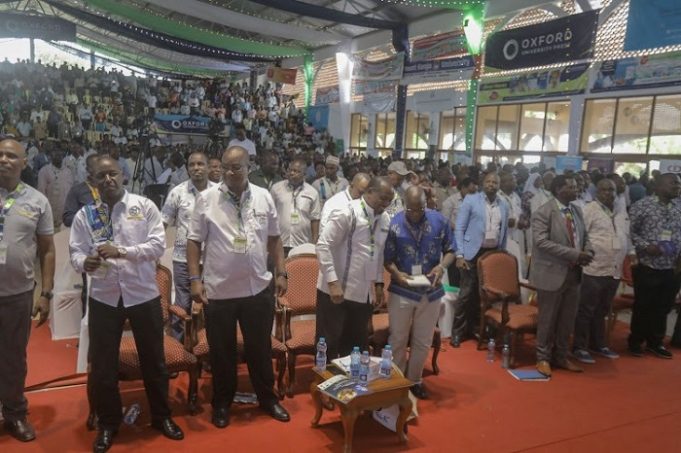Primary School Heads Demand to be Confirmed as JSS Principals
The primary school headteachers meeting in Mombasa have urged the National government to confirm them as principals of the Junior Secondary Schools under the Competency-Based Curriculum (CBC).
The Presidential Working Party on Education Reforms, which was being chaired by Prof Raphael Munavu, had in its 300-page report recommended a comprehensive school system with Pre-primary to Grade 9 managed as one institution headed by one head of the institution and two deputies.
The task force had also recommended that JSS (Grades 7,8 and 9) should be domiciled in primary schools.
For the whole of this year, primary school heads have been acting as principals for students who have transitioned to Grade 7. However, they are yet to be confirmed.
Read also:
KNEC, MOE on Fire After 200,000 Unregistered Candidates Sat For KCPE
Government Sets Aside Ksh19.7B For Teacher Recruitment
Tree Planting Holiday Will Not Affect KCSE Exams
Police Arrest Six Telegram Admins Over Exam Sales
KNEC CEO Says There Has Never Been Leakage, Even as Exam Cartels Change Tact
This is Why Machogu Banned School KUCCPS Application
This is How First Years Will Receive Their HELB Loans Next Week, Machogu
The Kenya Primary School Headteachers Association (Kepsha) national chairperson Johnson Nzioka on Tuesday said they should be confirmed as the JSS principals.
“Our request to the Cabinet Secretary (Education) is just one: to have the current primary school headteachers confirmed as principals of junior school,” Nzioka said.
He added, “considering that we have served in this position through the interim transition period, and have therefore amassed the necessary expertise to steer the full transition to a Comprehensive School, from stand-alone pre-primary, primary and Junior secondary schools.”
He was speaking during the official opening of the 20th Kenya Primary School Headteachers Association (Kepsha) annual delegates conference at Sheikh Zayed Hall in Mombasa.
Over 10,000 school heads are meeting in Mombasa, with the Education CS Ezekiel Machogu expected to officially open the conference on Wednesday.
Nzioka argued that a comprehensive school set-up offers a seamless transition from pre-primary to primary and Junior Secondary levels.
“This continuity can enhance the quality of learning experiences and facilitate a smoother change-over academically,” he said.
The Kepsha national chairperson said a single leadership may allow for more consistent management and coordination across the levels, ensuring alignment in school policies, curriculum programmes and teaching methods.
He said this will also consolidate resources across the levels and allow for the sharing of facilities, staff and instructional materials, enhancing cost savings and efficient resource allocation in the long run.
“Teachers and administrators across the levels can collaborate more closely, sharing best practices and collectively working towards common educational goals,” he said.
However, the Kepsha boss said several challenges might arise from managing a Comprehensive School set-up, therefore, there is a need for stakeholders’ collaboration.
“There will be likely increased complexity in managing Comprehensive School set-up due to the diverse needs and developmental stages of learners across pre-primary- JSS,” he said.
He said there would be a heavier administrative workload that calls for enhanced coordination among various stakeholders and addressing the unique issues at each level.
He added balancing resources and priorities between the different levels while ensuring that each level receives adequate attention and resources may be an ongoing challenge to deal with.
Nzioka urged the Ministry of Education, relevant government authorities, Kepsha, private sector organisations, education stakeholders, partners, and trade unions to work together to address several critical issues.
He urged the government to ensure equitable school resource allocation, and professional development for school leaders, staff, parents and stakeholders.
He also asked stakeholders to support programmes for learners, including school meals, chaplaincy, guidance and counselling, and mentoring.
At the same time, Nzioka said there is an opportunity for Kepsha to scale up the capacity building to enhance the leadership skills and competencies of headteachers, school staff and parents, to address the evolving educational landscape.
He said they can also provide the requisite support to enable the Comprehensive School Leadership (across the levels), and foster a positive and supportive school culture that promotes learners’ well-being, staff morale, and academic achievements.
“We can also provide resources, training, and guidance to our members, including promoting best practices, and advocating for policies that support innovations across the issues highlighted,” he said.




